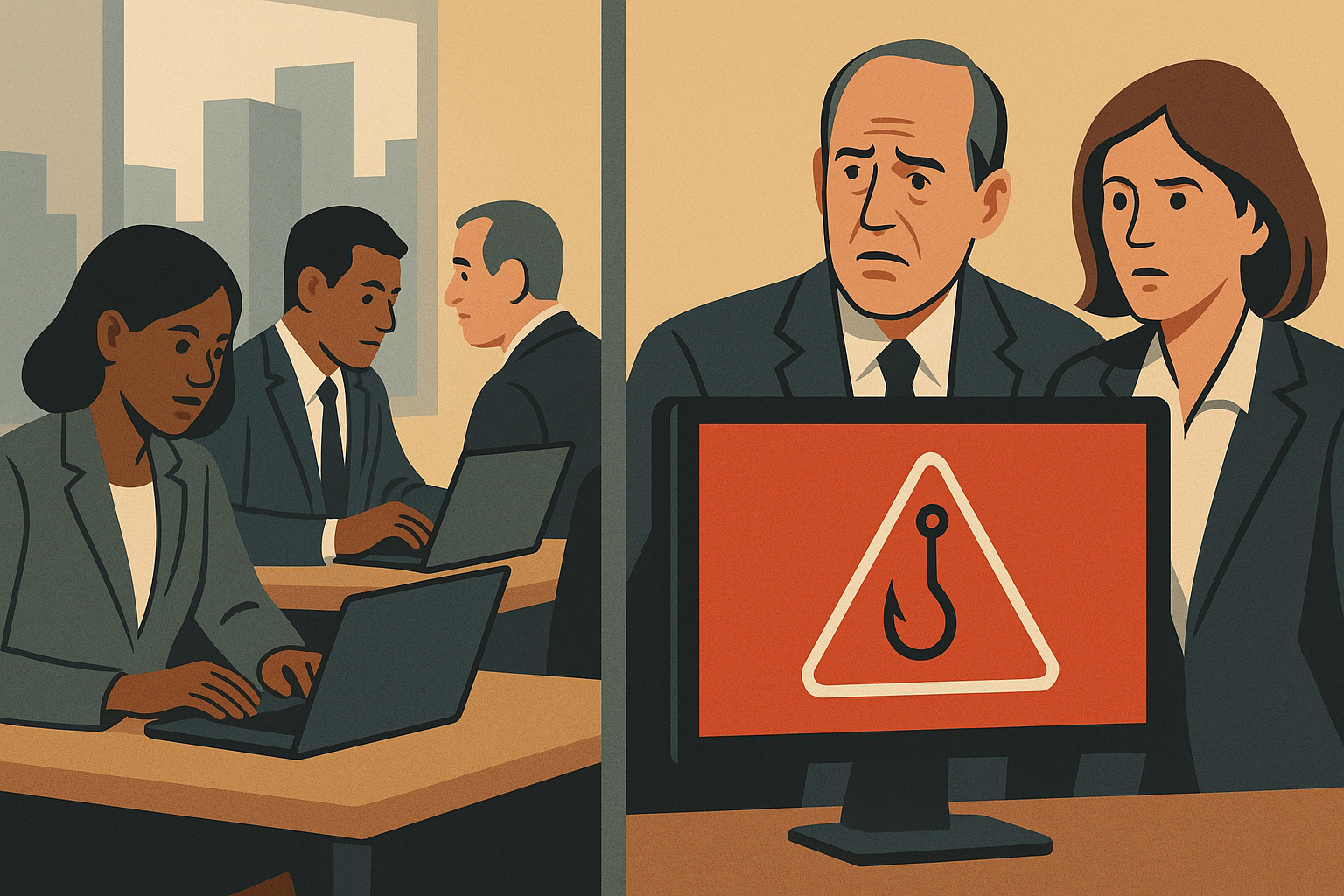Executives Fall for Sophisticated Phishing Scheme During Simulated Awareness Campaign
The Challenge
A routine quarterly cybersecurity awareness campaign revealed a serious weakness at Northbridge Advisory Group, a mid-sized management consulting firm in Toronto. The firm had deployed a new phishing simulation platform designed to mirror real threats. The message appeared to come from a trusted client and asked recipients to review a confidential strategy document through a secure link.
Within hours the dashboard showed troubling results. Several senior leaders, including two partners and the CFO, clicked the link and entered their credentials into a fake portal. The test exposed a hard truth: executives were among the most susceptible to phishing.
The potential impact was significant. In a real incident, attackers could have accessed client strategy reports, M&A files, and financial forecasts. For a firm that trades on discretion and integrity, this posed reputational and legal risk under PIPEDA.
The internal communications team moved quickly to control rumours. Confidence in leadership dipped, and hallway chatter highlighted a broader concern about the firm’s cyber maturity. Analysts reviewing logs found the lure had bypassed filters due to authentic wording and a convincing domain. The email used urgency and authority to push busy leaders into quick action.
A further issue surfaced. Executives had not been attending the same mandatory training required for other employees. Sessions were often rescheduled and never completed. The incident showed that cybersecurity awareness is not hierarchical. Even a simulated event can strain internal trust and reveal cultural blind spots.
Our Solution
We were engaged to strengthen executive awareness and improve communications around cyber risk. The program centred on role-based learning, measurable behaviour change, and culture.
- Targeted risk assessment: We mapped executive behaviours to business impact and privilege levels.
- Executive-specific curriculum: Training focused on spear phishing, business email compromise, credential theft, and client-themed lures.
- Microlearning: Short, scenario-driven modules were available on demand to fit executive schedules.
- Quarterly simulations: Ongoing tests used realistic, context-rich lures tailored to leadership.
- Technical controls: We advised on anti-spoofing measures, stronger MFA on privileged accounts, and a one-click phishing reporting button in Outlook.
- Transparent communications: Messages from the CEO and CISO framed the event as a learning opportunity and set clear expectations for participation.
The Value
Six months after launch the firm achieved measurable improvements: The program reduced operational and reputational risk and demonstrated a clear return on investment in awareness.
- Phishing click rate among executives down 80% in follow-up simulations.
- 100% completion of mandatory awareness modules across all levels.
- Employee survey confidence up 45% on cyber readiness.
- Improved compliance posture under PIPEDA and alignment with CCCS guidance.
- Stronger client trust, supported by external statements on governance and controls.
Implementation Roadmap
Phase 1: Assessment and Planning (Weeks 1–2) Phase 2: Program Development (Weeks 3–5) Phase 3: Deployment and Monitoring (Weeks 6–12) Phase 4: Evaluation and Continuous Improvement (Months 4–6)
- Review simulation results and training records.
- Interview executives and IT stakeholders.
- Map leadership risk exposure under PIPEDA and internal policy.
- Build tailored executive modules and microlearning assets.
- Schedule recurring simulation cycles and enable the reporting button.
- Establish mandatory participation policies for leadership.
- Deliver executive sessions in hybrid format.
- Launch real-time monitoring and metrics dashboards.
- Run live phishing exercises and track behaviour changes.
- Report on engagement and outcomes to the Board.
- Refresh content to reflect new attacker tactics and feedback.
- Incorporate awareness metrics into annual performance evaluations.


